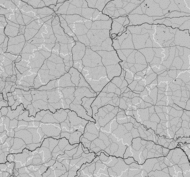What Do We Know About Gambling in New Zealand?
The Gambling Act defines four classes of gambling.
Lotteries, prize competitions, gambling games, and instant games generally fall under classes 1–3; slot machines outside of casinos are classified as class 4. You can explore more about all slots casino features for a better understanding of how these games operate in different jurisdictions.
Class 1
Prizes and turnover do not exceed $500.
No license is required.
Class 2
Prizes exceed $500 but do not exceed $5,000.
The potential turnover of the gambling exceeds $500 but does not exceed $25,000.
No license is required.
Class 3
Prizes in gambling or for one session of play exceed $5,000.
A license from the Ministry of Internal Affairs is required.
Conducting Gambling of Classes 1 and 2
If you organize a lottery, prize competition, gambling game, or instant game, and the total value of the prizes offered or awarded to winners in the gambling game (or in a single session of gambling) is less than $5,000, you do not need a license. However, you must comply with the Gambling Act and the relevant provisions and rules for the type of gambling you are organizing.
Lotteries
A lottery is a form of gambling that involves a random drawing, which takes place after all participants have entered. Lotteries and raffles are common types of lotteries.
Prize Competitions
Unlike a lottery, a prize competition is a form of gambling that requires participants to demonstrate specific knowledge and skills.
Gambling Games
A gambling game is a type of gambling that does not involve a lottery, prize competition, instant game, slot machine, or casino gambling.
Instant Games
An instant game is a type of gambling in which the winning ticket or entry is determined before or at the time of ticket sale, either randomly or entirely by chance. A reward (payment) must be transferred from the participant to the organizer for the activity to be considered gambling under the Gambling Act.
Class 1 Gambling
Prizes and turnover do not exceed $500.
Class 1 gambling can be conducted by both individuals and societies.
For gambling conducted by individuals, the entire turnover from gambling, minus expenses, must be directed towards awarding prizes to the winners.
For gambling conducted by societies, the net income from gambling must be used for authorized purposes.
No reward or commission is paid.
If the gambling is conducted in sessions consisting of more than one game, only one session can take place per day.
Class 2 Gambling
Prizes exceed $500 but do not exceed $5,000. The potential turnover of gambling exceeds $500 but does not exceed $25,000.
Only societies (not individuals) can conduct class 2 gambling. Societies can be corporate or non-corporate.
The net income from gambling must be used for authorized purposes.
The Gambling Act 2003 sets a number of requirements for points of sale, including the sale of tickets or registration forms when conducting class 2 gambling.
Organizers conducting class 2 gambling must familiarize themselves with Section 25 (requirements) of the Gambling Act.
No reward or commission is paid.
Reward and Commission
The Gambling Act requires that no commission be offered, paid, or received by any person for conducting gambling in class 1 or class 2. Furthermore, no reward is to be offered, paid, or received for conducting gambling, except for an authorized representative of the society if the gambling is conducted by a society.
Prohibited Prizes
The Gambling Act rules specify prohibited prizes, including firearms, alcoholic beverages, and tobacco products. These must be adhered to when conducting gambling activities.
Game Rules
In addition to complying with the Gambling Act and the relevant provisions, gambling organizers must follow the rules of the game for the specific game they are organizing. Game rules are a form of regulation. There are game rules for lotteries, prize competitions, instant games, and gambling games.
A set of rules exists for all gambling classes, but gambling games in classes 2 and 3 are subject to more rules than class 1. For instance, there are basic rule sets that must apply to all lotteries, but lotteries at class 3 level are subject to additional requirements for tickets, record-keeping, and audits.














Komentarze
Kanał RSS z komentarzami do tego postu.